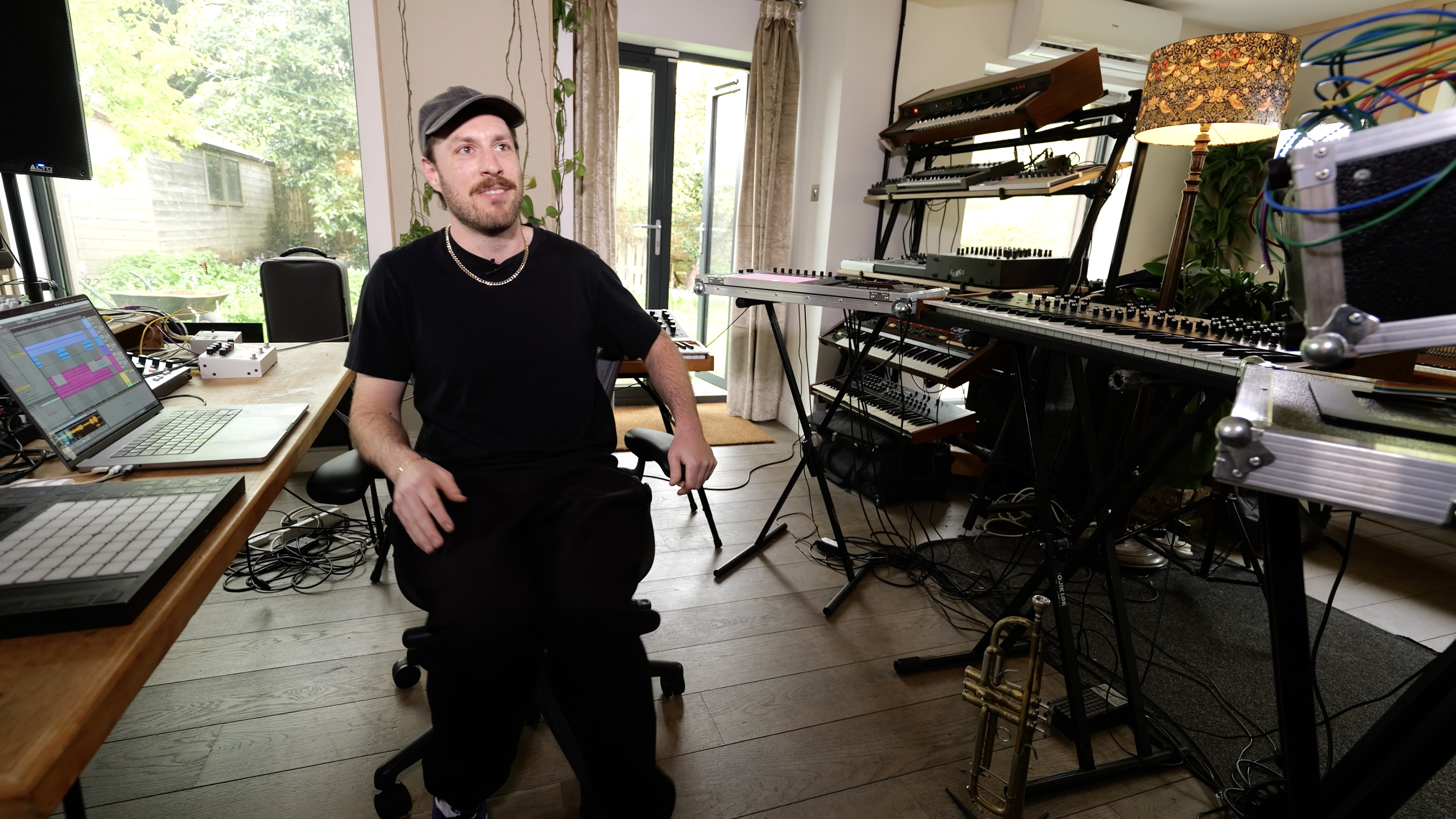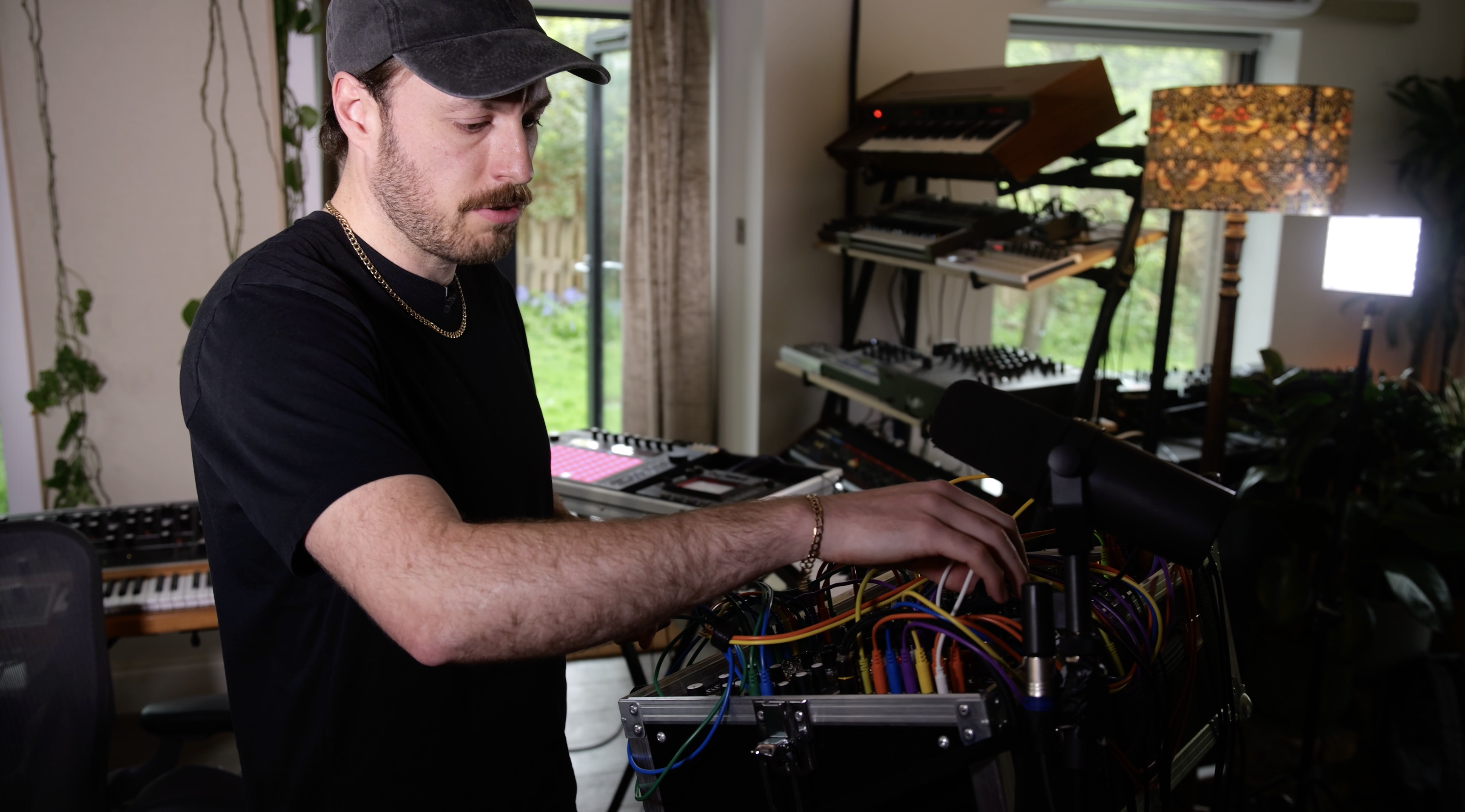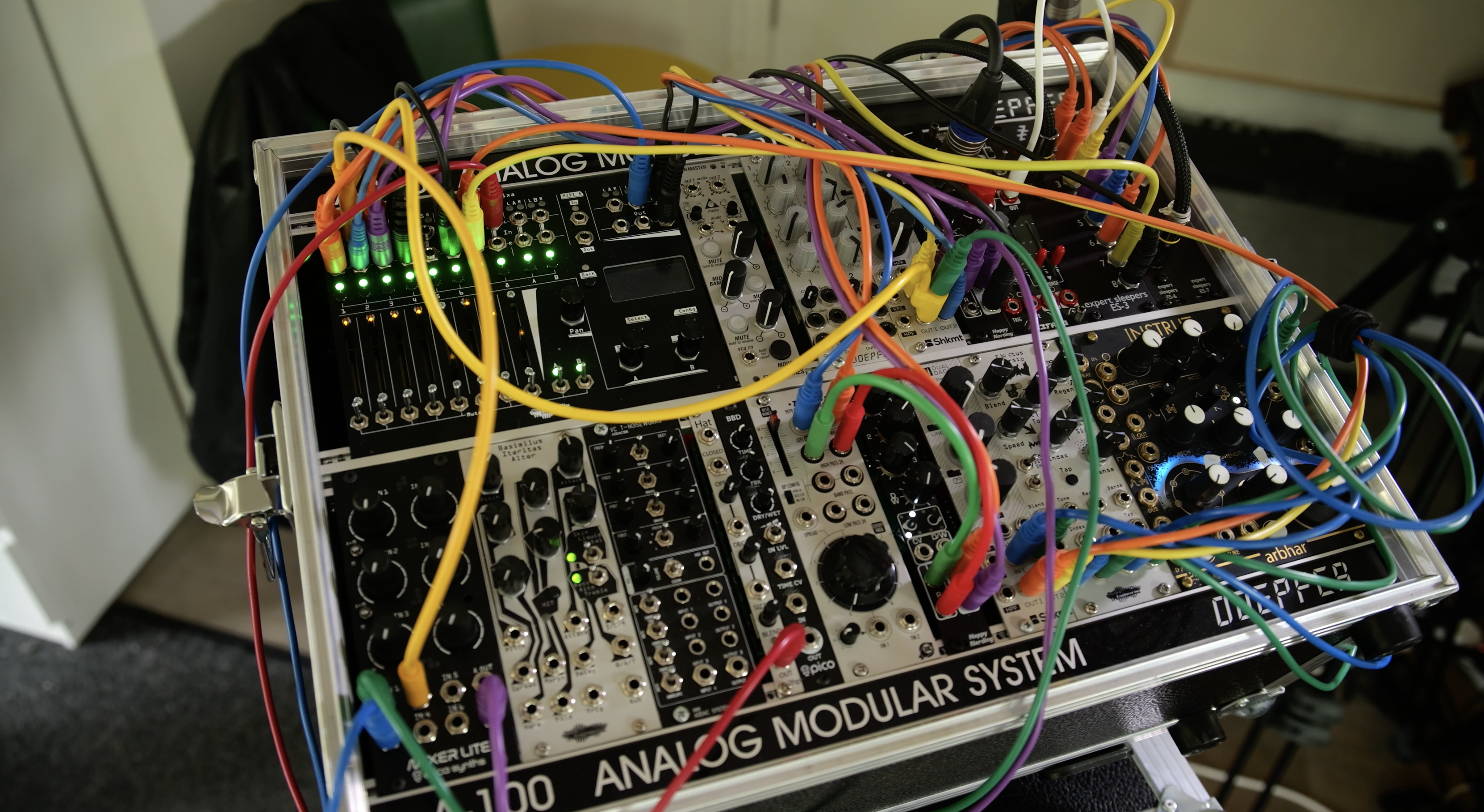“It's absolutely not necessary – people can get by their whole careers without knowing music theory": Producer Lawrence Hart on the mixed blessings of classical training and the importance of being ‘scrappy’ in the studio
The Domino artist and George Fitzgerald collaborator on the creative process behind Come In Out Of The Rain

Come In Out Of The Rain, the debut album by London-based electronic musician Lawrence Hart, is a joyful mix of hooky synth lines and nostalgia-invoking vocal loops. Described by Hart as an ‘emotional garage record, euphoric and therapeutic’ the album is one of the most purely enjoyable dance releases of the year.
Hart’s route through the music industry to this point has been fairly unconventional, taking in the 2010s indie rock scene and New York jazz circuit on his way to this current, club-focused sound. While he’s bounced between musical traditions, his love making music has been consistent since a young age.
“When I was about two, I used to fill up different toys in the bath with different amounts of water and, like, blow in them,” he laughs. “I think after that my parents knew I was going to do music. So then my grandfather gave me his trumpet. I started playing trumpet and then piano shortly after that.”

Hart began studying classical music and composition, before discovering jazz. An ambition to make a career as a jazz trumpeter led him to New York, where he studied and played gigs around the city’s various bars and venues.
From jazz, Hart began playing in and touring with a variety of indie rock bands, while simultaneously discovering electronic music through artists like Aphex Twin, Massive Attack and Four Tet.
His proper introduction to the world of dance music came when he returned to the UK and began a collaborative partnership with George Fitzgerald, one of several artists he’s worked closely with, also including the likes of Model Man and Mera Bhai.
Through these collaborations, Hart honed his production and sound design skills. Today, an enviable array of hardware synths and drum machines provide the driving force behind his music making. Still, his classical training and the range of his experience as a musician sets him apart from many of his theory-illiterate peers in the world of dance music.
Want all the hottest music and gear news, reviews, deals, features and more, direct to your inbox? Sign up here.

While Hart acknowledges the obvious advantages of his musical background, separating the technical part of his brain from the more creative, intuitive side presents its own challenges. In fact, balancing those competing impulses provides much of the thematic drive behind Come In Out Of The Rain.
“When I was younger, I used to play and practice for like, eight hours a day,” he says. “I’d get to school and I wouldn't hang out with kids during lunch break. I'd go back to the music building and play.
“I've kind of reached a point in my life where I feel like I've accrued a lot of skills, and I don't need to be in the woodshed as much as I did,” he continues. “The idea of the record, coming in out the rain, was about me stopping keeping myself away from people and stopping thinking I just need to work on music.
“I've actually spent my whole life doing this, and I can kind of enjoy some of those skills I've built up and actually just hang out with people a bit more and not feel like I need to be working on that.”
"I feel like I've accrued a lot of skills, and I don't need to be in the woodshed as much as I did.”
Part of the process behind writing the album involved suppressing some of the more technical aspects of musicianship and production, in favour of a more tactile and emotive approach.
“There was definitely a point where I would focus more on the technical aspects,” he says. “But now I'm more physical with the way I write. That’s why I like [hardware] synths, because I need to play them. If I'm writing there's always that point where I need to do something physical with it. If I'm writing a keyboard riff, I play it – it's that visceral act of physically playing that lets the emotion come through.”
Listening to the album, it’s not hard to hear how Hart’s musical background has influenced his current output. While the record is built on a bed of skippy garage beats, the tracks are equally driven by a rich and euphoric collage of synth chords, atmospheric pads and emotive vocals.
Does Hart recommend other electronic musicians dedicated themselves to studying music theory? Not necessarily.
“It's absolutely not necessary, and people can get by their whole careers without knowing it,” Hart says. “But I think it depends what kind of music you want to make.
“What I’ve found is that coming up through classical music and jazz and learning all the theory has meant I've always been able to develop my music. There's never been any limits put in place, because I've come from much more complex art forms – in terms of harmony and rhythmic ideas – so whenever I’ve listened to new things, it hasn't thrown me, I've gone like, ‘Oh, that's a cool thing – let me pursue that.”
Formal musical education is only one side of Hart’s background as a musician though. He readily acknowledges that some of the most important lessons learnt on the way to becoming the producer he is today have come through his collaboration with other electronic artists.
“I've learned, like, everything from George [Fitzgerald],” he tells us. “When we were working on his first album, I think both of us had so many gaps in our knowledge, and we taught each other a lot. I was coming from a more musical side and, as a DJ and from producing post dubstep records, he knew a lot about mixing.

“With Mark [Brandon, aka Model Man], it was a case of seeing how he worked with vocals. I think you could probably see, since I've worked with Model Man, my vocal style has moved on a lot. I think before I worked with him my vocal chops were a lot more obtuse, and I still have an element of that, but I really love the longer lyrical phrases he uses.
“From Giulia Tess I've learned to keep things scrappy,” he says. “I think I was in a place before I worked with her, where I was sanitising everything a bit too much, and then she really taught me to just make it wild. I've tried to stick to that ethos.“
The album’s other big defining characteristic is the looped and chopped vocal samples that run through almost every track.
“I really wanted to make vocals the centerpiece of [the album],” Hart explains. “I wanted almost every track to be focused around these late-'90s and early-‘00s R&B samples.”
While the samples add an unmistakable sense of nostalgia throughout the album, Hart admits that waiting for clearance delayed the album’s release somewhat.
“It definitely held me up quite a bit,” he tells us. “Actually what was interesting is the ones I cleared right away were just from smaller artists.
“I think now what I'm trying to do is just find smaller artists where it's mutually beneficial and just see if they're up for it right away,” he says. “You can get in contact with them directly and you’re not just sending an email to a massive corporation.”
He admits that the experience of clearing those older samples might inspire a slight change of approach for future releases.
“I'm working more with singers, and just getting people in the studio to record,” he says. “I’m also doing stuff like AI modding my own voice. I know that’s a controversial topic but I find it really enjoyable. I loved it on the Caribou record. That kind of inspired me to try it, because I've sung on quite a few records but never enjoyed the sound of my own voice. So I'm finding ways around that, which I'm enjoying.”
Lawrence Hart’s album Come In Out Of The Rain is out now on Domino.
I'm the Managing Editor of Music Technology at MusicRadar and former Editor-in-Chief of Future Music, Computer Music and Electronic Musician. I've been messing around with music tech in various forms for over two decades. I've also spent the last 10 years forgetting how to play guitar. Find me in the chillout room at raves complaining that it's past my bedtime.
You must confirm your public display name before commenting
Please logout and then login again, you will then be prompted to enter your display name.
![Lawrence Hart [Domino Records] builds a track from scratch – In The Studio - YouTube](https://img.youtube.com/vi/VttEfbrzWDw/maxresdefault.jpg)